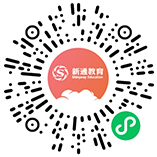新通托福高分素材库出炉啦!众所周知,托福阅读一直是中国考生的薄弱项,新通教育为帮助广大托福考生突破阅读瓶颈,提高阅读成绩,特地精心整理了托福阅读高分分类素材库。那快来托福阅读高分素材库汲取营养吧!
Nineteenth-Century Politics in the United States
The development of the modern presidency in the United States began with Andrew Jackson who swept to power in 1829 at the head of the Democratic Party and served until 1837. During his administration, he immeasurably enlarged the power of the presidency. "The President is the direct representative of the American people," he lectured the Senate when it opposed him. "He was elected by the people, and is responsible to them." With this declaration, Jackson redefined the character of the presidential office and its relationship to the people.
During Jackson's second term, his opponents had gradually come together to form the Whig party. Whigs and Democrats held different attitudes toward the changes brought about by the market, banks, and commerce. The Democrats tended to view society as a continuing conflict between "the people”—farmers, planters, and workers—and a set of greedy aristocrats. This "paper money aristocracy" of bankers and investors manipulated the banking system for their own profit, Democrats claimed, and sapped the nation's virtue by encouraging speculation and the desire for sudden, unearned wealth. The Democrats wanted the rewards of the market without sacrificing the features of a simple agrarian republic. They wanted the wealth that the market offered without the competitive, changing society; the complex dealing; the dominance of urban centers; and the loss of independence that came with it.
Whigs, on the other hand, were more comfortable with the market. For them, commerce and economic development were agents of civilization. Nor did the Whigs envision any conflict in society between farmers and workers on the one hand and businesspeople and bankers on the other. Economic growth would benefit everyone by raising national income and expanding opportunity. The government's responsibility was to provide a well-regulated economy that guaranteed opportunity for citizens of ability.
Whigs and Democrats differed not only in their attitudes toward the market but also about how active the central government should be in people's lives. Despite Andrew Jackson's inclination to be a strong President, Democrats as a rule believed in limited government. Government's role in the economy was to promote competition by destroying monopolies' and special privileges. In keeping with this philosophy of limited government, Democrats also rejected the idea that moral beliefs were the proper sphere of government action. Religion and politics, they believed, should be kept clearly separate, and they generally opposed humanitarian legislation.
The Whigs, in contrast, viewed government power positively. They believed that it should be used to protect individual rights and public liberty, and that it had a special role where individual effort was ineffective. By regulating the economy and competition, the government could ensure equal opportunity. Indeed, for Whigs the concept of government promoting the general welfare went beyond the economy. In particular, Whigs in the northern sections of the United States also believed that government power should be used to foster the moral welfare of the country. They were much more likely to favor social-reform legislation and aid to education.
In some ways the social makeup of the two parties was similar. To be competitive in winning votes, Whigs and Democrats both had to have significant support among farmers, the largest group in society, and workers.Neither party could win an election by appealing exclusively to the rich or the poor. The Whigs, however, enjoyed disproportionate strength among the business and commercial classes. Whigs appealed to planters who needed credit to finance their cotton and rice trade in the world market, to farmers who were eager to sell their surpluses, and to workers who wished to improve themselves. Democrats attracted farmers isolated from the market or uncomfortable with it, workers alienated from the emerging industrial system, and rising entrepreneurs who wanted to break monopolies and open the economy to newcomers like themselves. The Whigs were strongest in the towns, cities, and those rural areas that were fully integrated into the market economy, whereas Democrats dominated areas of semisubsistence farming that were more isolated and languishing economically.
Paragraph 6: In some ways the social makeup of the two parties was similar. To be competitive in winning votes, Whigs and Democrats both had to have significant support among farmers, the largest group in society, and workers. Neither party could win an election by appealing exclusively to the rich or the poor. The Whigs, however, enjoyed disproportionate strength among the business and commercial classes. Whigs appealed to planters who needed credit to finance their cotton and rice trade in the world market, to farmers who were eager to sell their surpluses, and to workers who wished to improve themselves. Democrats attracted farmers isolated from the market or uncomfortable with it, workers alienated from the emerging industrial system, and rising entrepreneurs who wanted to break monopolies and open the economy to newcomers like themselves. The Whigs were strongest in the towns, cities, and those rural areas that were fully integrated into the market economy, whereas Democrats dominated areas of semisubsistence farming that were more isolated and languishing economically.
10. According to paragraph 6, the Democrats were supported by all of the following groups EXCEPT
○workers unhappy with the new industrial system
○planters involved in international trade
○rising entrepreneurs
○individuals seeking to open the economy to newcomers
咨询时间:8:00~24:00
 400-618-8866
400-618-8866
咨询时间:8:00~24:00
扫一扫
立即报名

扫一扫
立即进站

想要获取更多考试培训信息,可以通过以下方式联系到距离您最近的新通教育;
1、拨打新通教育咨询热线:400-618-8866;
2、点击【立即咨询】 ,我们会有课程老师为你解答考试难题;
3、完成以下表单,轻松预约,预约获取定制学习方案的机会。